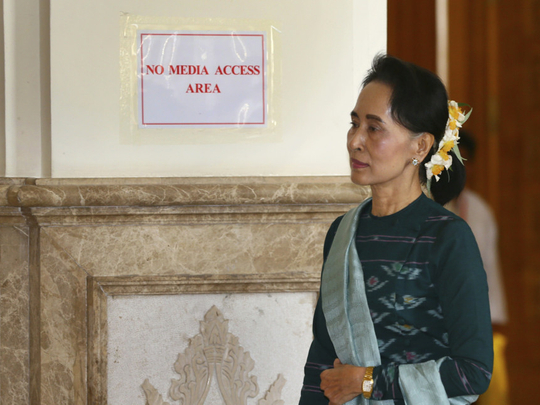
Hong Kong: Aung San Suu Kyi, the de facto leader of Myanmar and a Nobel Peace Prize laureate, came under increased pressure yesterday to address the Rohingya crisis.
As protests erupted across the region, some wondered whether the Nobel Committee, which conferred the honour on her in 1991, would publicly criticise her or could even revoke the prize. She is widely held responsible for the crisis, with several calling for her prize to be revoked.
ALSO READ:
Suu Kyi under pressure as almost 125,000 Rohingya flee violence
Persecution of all Muslims in Myanmar on the rise: Rights group
Bahraini ex-MP calls for revoking of Suu Kyi’s Nobel Prize
Take back Suu Kyi’s Nobel Peace Prize: social media users
Mass Rohingya exodus continues
Those appeals are particularly poignant given Suu Kyi’s history as a political prisoner.
She spent 15 years under house arrest after winning a presidential election in 1988.
Under a constitutional power-sharing agreement, she was appointed state counselor after her party, the National League for Democracy, won in a landslide election in 2015. Still, under the law, she cannot become president and the military effectively controls many of the state’s levers of power.
Suu Kyi has been conspicuously silent on the Rohingya issue. “No, it’s not ethnic cleansing,” she said in an interview in 2013.
The Nobel Committee, all Norwegian citizens appointed by the country’s Parliament, has never rescinded a prize and will not in Suu Kyi’s case either, said Gunnar Stalsett, a former committee member.
“A peace prize has never been revoked and the committee does not issue condemnations or censure laureates,” said Stalsett, a former politician and bishop who was a deputy member of the committee in 1991, when Suu Kyi received her award.
“The principle we follow is the decision is not a declaration of a saint,” Stalsett said. “When the decision has been made and the award has been given, that ends the responsibility of the committee.”











